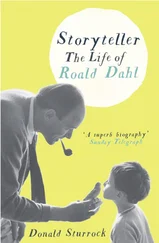When Lily put on her costume Friday night for the first performance and looked in the mirror, she lost Hermia and forgot her lines. She had often dreamed of such a moment, going onstage without a word in her head. But it didn’t last. When she heard her cues, the lines came back to her and so did Hermia, who seemed to have changed again, to have become a little fiercer and more passionate, and when she fought Helena, the audience was very, very quiet. Mabel sat in the front row, and once when Lily looked down at her while she was speaking, she saw the old woman’s lips moving without sound. And after that first performance was over, and Lily was cheered and congratulated, she kept Hermia inside her a little longer, and she and Jim held hands offstage.
* * *
Saturday, the weather was perfect. Winds from the Dakotas swept in a cloudless sky and low humidity, and walking up the church steps Lily thought to herself that her father would have seen it coming if he had been there. The church wasn’t full, but it was almost full. Lily seated herself beside Mabel in a pew toward the back and noticed several people turning their heads to get a glimpse of the waitress who had served Martin Petersen his last meal. Ida came wearing a silver bow in her high hairdo. Mrs. Baker and Mrs. Wright came with their husbands. Jim, Denise, Oren and Gordon arrived together. Bert brought Boomer, but Vince stayed home. Lily recognized Martin’s sister, Eileen, and his older brother, whose name she couldn’t remember. Lily waited for them, but Frank and Dick never shuffled into the church. Dolores came. She wore a blue suit that hugged her figure and had put her hair up. The effect tamed her, Lily thought.
Pastor Carlsen avoided the word “suicide.” She guessed she would have heard if he had said it, but the truth was that Lily didn’t listen very closely. Martin’s coffin was standing in the front of the church, and she looked at it very hard to focus herself. She imagined Martin inside the coffin, and then she tried to remember the doll. She had been worrying about that doll. She didn’t want anyone to find it and recognize her in its face and body. Martin could have left it anywhere, and as she thought about the doll, she tugged repeatedly at the material of the black blouse she was wearing, the one Mabel had given her. She did this without thinking and didn’t stop until she felt Mabel’s hand close over hers. She lowered her hand and looked at Mabel’s cane. It had a taupe rubber grip. If someone finds it, they’ll know it’s me, she said to herself.
Martin’s sister was talking, and Lily tried to find Martin’s face in hers, but she couldn’t. Eileen had just finished saying, “My brother was a kind person,” when she looked up, opened her mouth wide and emitted an odd, little noise. It wasn’t loud, but it expressed amazement, and the congregation turned as one to look toward the back of the church and saw Tex charging down the aisle dressed like an outlaw from the old West, complete with black hat, six-shooters at his hips and spurs that jingled as he flew past Lily and Mabel’s pew toward the coffin. Had it not been church, Lily knew that several people would have leapt to their feet immediately, but it was church and for a couple of seconds a horrified pause fell over the sanctuary. Then from the back a child started crying, and Lily saw Martin’s brother leap to his feet and saw Pastor Carlsen with his hands raised and his mouth open. He was speaking, but Lily heard nothing through the din that had now broken out among the people in the pews.
Lily didn’t move. Tex had mounted the coffin and was straddling it awkwardly. Big as he was, the coffin was too wide for playing horse, and the next thing she knew Tex was pounding on the lid, yelling, “Marty! Marty!” Four or five men near the pulpit, including Pastor Carlsen, threw themselves at Tex and dragged him off the coffin, but the huge man turned and heaved himself back toward the box, and for a second or so, no more, Lily thought she saw the lid of the coffin opening. Her face vibrated with what felt like electricity. She shut her eyes and imagined Martin sitting up in his coffin and climbing out. In her mind, he was wearing his costume but then she wondered how they had dressed him. In Webster, every male corpse she had ever seen had worn a navy blue suit — her grandfather, her uncle, Mr. Deerhoeven. When she opened her eyes, she saw Pastor Carlsen untangling his vestments from Tex’s spurs. The coffin was closed.
After Lewis Van Son and Dick Shockley hauled off Howard Gubber to jail, everybody stayed for the end of the service. Lily could feel the collective determination in the room to finish what they had started. Eileen was shaking, but she continued her speech. She said Martin loved carpentry and books and animals. Lily didn’t know about the animals, but she took his sister’s word for it. It’s all true, she thought, and it’s all a lie. Eileen wanted to remember him, to say what was right, but Lily had a feeling you could dig and dig and talk and talk until doomsday and no “real” Martin would be found, that whatever had been there, you couldn’t say it. When the pallbearers carried the hidden body out of the church, Lily fumbled for Mabel’s hand without looking at her, and she held on to it through the benediction: “The Lord bless thee and keep thee. The Lord make his face shine upon thee and give thee peace.”
* * *
The Ideal Cafe reopened the following Monday, and Lily started working her usual shift. For about a week the only people who sat at the booth by the window were from out of town. After that, nobody seemed to care where they sat, but Martin’s death remained a hot topic. People were less interested in why Martin had killed himself than Lily would have thought. They said he was crazy or in despair, but that’s all. As far as she could tell, they took it, as her aunt Irma used to say, “philosophically.” It interested her, too, that Martin’s pointing the gun at Lily wasn’t included in the story. People in the cafe that day must have seen it, Lily thought, but nobody talked about it. Nevertheless, Lily sensed that there was talk about her and Martin, and that even if nobody blamed her for Martin’s death, they knew she had been somehow involved in it. When people stared and whispered, she felt as if she had become an object to point at and say, “She was right there when he did it — only inches away. There was blood all over her.”
For several days Boomer Wee gave tours of the “suicide booth,” mostly to boys under twelve. Then Vince got wind of it and told him to stop. But while it lasted, Boomer charged a quarter for the “reenactment”: “Had the weapon in a bag. Big sucker. Stuck it ’tween his teeth.” That was Boomer’s cue to bite down on his finger and throw himself backward toward the window while he continued his description, which came straight from the pages of a comic book: “Pow! Bang! Blew his head off!” Boomer had been in the kitchen when Martin shot himself. He had seen him die through the door. Apparently only seconds after the shot, Mike Fox had come barreling into the kitchen, and Boomer had thrown up all over both of them. Something about Boomer’s performance fascinated Lily. She didn’t mind seeing it, just as she didn’t mind the abbreviated version of the story that was told again and again. “Martin Petersen walked into the Ideal Cafe and ordered his breakfast as usual. He ate it, every last bite, and then he took out a gun and blew his brains out.” Neither Boomer’s theatrics nor the little story misrepresented what had happened, and yet when Lily watched Boomer gyrating in the booth or listened to someone telling about the suicide, she experienced the gestures and words as evasions. She had forgotten Martin’s corpse, but somehow that blank spot in her mind where his body should have been came closer to the truth than anything anyone could do or say.
Читать дальше












